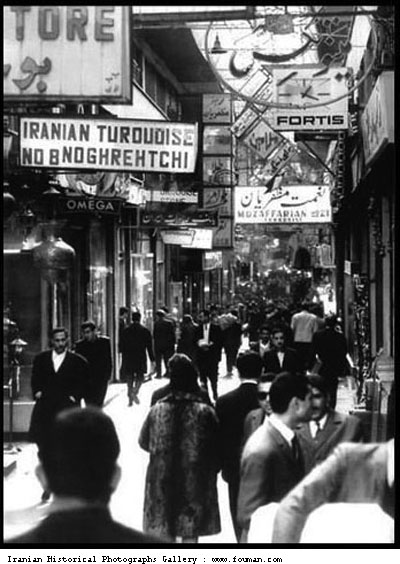- Details
- Written by: Kamran Mofid
- Hits: 6080

Photo: enquiredaily.com
I don’t know about where you are, but our politicians here in Britain keep talking about aspiration. The Tories talked about it all the time during the last government, they continued talking about it during the recent general election too.
Now that Labour has lost it all, they, too, all of sudden are talking aspiration!
As noted in the Guardian ‘The word has been used by Tony Blair, in his prescription for what Labour should do next; “Labour has to be for ambition and aspiration as well as compassion and care,” he wrote, in the immediate wake of the party’s election defeat. In an interview that same weekend, Liz Kendall, who is running for the leadership, echoed Blair’s comments, saying, “we need to show people that we understand their aspirations and ambitions for the future, and if you look right across England, we did not do enough to appeal to Conservative supporters, and we must”.
‘And Andy Burnham, one of the frontrunners in the race, spoke of aspiration when he launched his bid. He said the party’s challenge was to rediscover the beating heart of Labour, “and that is about the aspirations of everyone, speaking to them like we did in 1997 ... giving every single person the dream of a better life, about helping all of our businesses, small and large, to get on and grow”.
In the Guardian’s article, four writers explain what the word means to them.*
Below is my take on aspiration and what it means to me.
I aspire to imagine a better world: A world for the common good. I hope this might be your aspiration too:
- Details
- Written by: Kamran Mofid
- Hits: 4391

Photo via kinedu.com
Will Hutton writing in today’s Observer about the heavy fines imposed on the banks for fiddling the foreign exchange markets, has, in my view, very wisely noted that: 'Our grandparents, less in hock to today’s ruling doctrines – that markets can be presumed to be infallible and egoism is always beneficial – were wiser about how to organise markets than today’s economists and regulators.'
However, the big question is to ask “WHY” this may be the case?
The answer in my mind is very easy: They did not have PhDs and MBAs from the so-called “Prestigious” universities and business schools, where they believe there is no correlation between ethics, economics and business*. Our grandparents were not brainwashed by academics that have never been to a market, a bazaar, but pretend to know it all, telling students how the markets work!
I vouch for this based on profound personal experience.
As a young boy, I recall all those years ago in the 1960s when during the summer holidays I used to go with my late father to his office in Tehran’s Grand Bazaar, the largest market of its kind in the world, where most of my family had major businesses.
Billions of dollars exchanged hands every year: imports, exports, foreign exchange and much more, all in the Bazaar in Tehran.

Tehran Grand Bazaar Circa 1960s
*In this photo I can see a few of my dad's cousins' jewllery shops, Muzaffarian and Noghrechi
You know, hardly any of these skilled businessmen, traders, had high school diplomas, let alone university degrees. They hardly had any insurance for anything, or ever a need for lawyers, litigations, etc, to solve any dispute. They were men of honour and dignity, trusting each other. Their words were their contracts. Their contracts were their honour. They were educated on the job. They had all risen through ranks, starting as apprentices at a very young age.
They practiced what they preached. They had the same values at home as they had at the Bazaar too. They knew the common good. They were not, like today’s CEOs, with double personalities: One for home and another one for the market!
Yes, this is where we have gone wrong, confusing today’s so-called education with wisdom and knowledge, where in fact it is nothing of the sort. And we are all paying a very heavy price for this, when we pay 10s of 1000s of £ and $ to go to university, get an MBA and then go to the banks and destroy the world.
*To reflect more fully on the points raised in this Blog, I very much recommend you to read the text of a lecture I gave at London School of Economics on Wednesday 20 May, 2015. The lecture was at the invitation of the World Congress of Faiths:
Economics, Globalisation and the Common Good: A Lecture at London School of Economics
Read Will Hutton’s article:
- Details
- Written by: Kamran Mofid
- Hits: 3741

Photo: oliverdeeham.com
Since posting the text of the lecture I gave at London School of Economics, at the Annual General Meeting of the World Congress of Faiths Economics, Globalisation and the Common Good: A Lecture at LondonSchool of Economics I have received many encouraging notes, comments and some very good questions.
One of the questions from an undergraduate student of economics was:
Can you please tell me ‘Why Economics Needs the Common Good?’
I thought what a very good question. It needs my immediate response.
- Economics, Globalisation and the Common Good: A Lecture at London School of Economics
- The Youth for the Common Good to Build a Better World
- The Economics of Fools that Won the Day on 7 May 2015
- UK General Election 2015- Why the Progressives failed so badly?
- “The challenge is to agree on how to use our powers for the common good”
